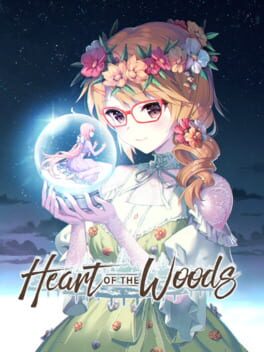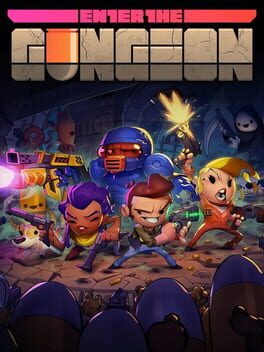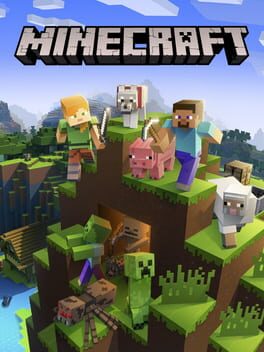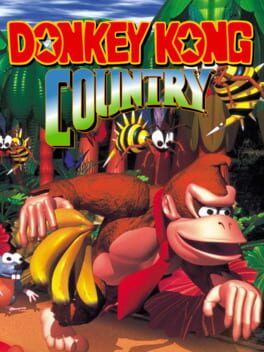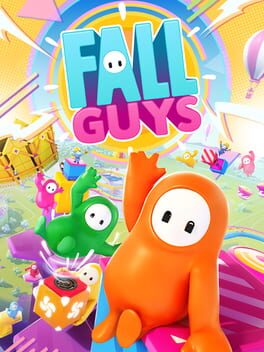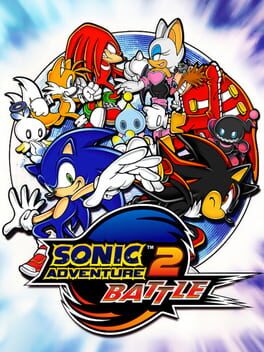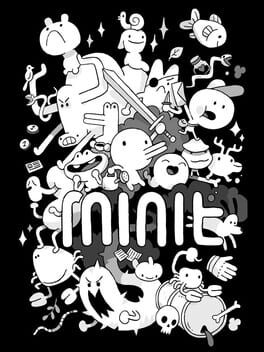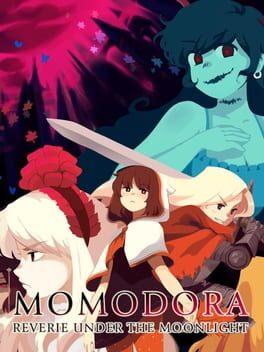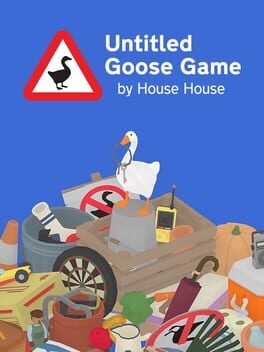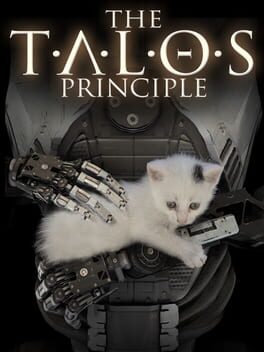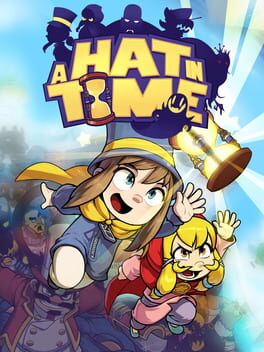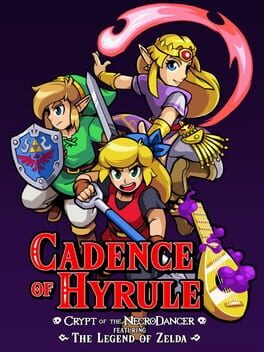AutumnLily
2019
This review contains spoilers
One of the most impressive and enjoyable parts of Heart of the Woods is, especially in its opening couple acts, how it manages to gently push your suspension of disbelief further and further in its introduction of its fantastical elements. At the very beginning you find yourself asking, just like Maddie does, whether the magical elements could really be real, and Morgan is believably presented as unreliable in what she's saying. Yet, over the course of these opening hours, the game submerses you into these magical elements step by step so that each level deeper you go just adds to all the mystery and intrigue and excitement; the big reveal of the forest spirit, looming outside the church, is particularly breathtaking. Yet one of my favourite moments is when the game swapped point-of-view to Morgan for the first time, right before the introduction of Evelyn's ability to influence and control people's actions; the timing on this is so perfect for suspending disbelief as up until now Morgan has been presented as unreliable through the eyes of Maddie and Tara, and we need to see things through her own eyes to know that we can actually completely believe what she's about to say about her mother. A moment earlier and the mystery wouldn't have been so enjoyable, a moment later and we'd struggle to get on board with the notion that Evelyn is capable of such things.
I do think there are some elements of the story-telling that work less well, in particular I think this game is generally worse at resolving problems than developing them with a handful of situations that were resolved in what felt like deus-ex-machina-esque means that, whilst they later might make sense in context of the world-building, weren't hugely narratively satisfying at the time. I like the direction these moments take the story, and am somewhat forgiving towards them because of that, but wish they could have been brought to me in a more satisfying manner considering quite how good the game is at initially developing and submersing us into this world. On a different note, Evelyn forcing Morgan to burn down the main tree at the heart of the forest felt like an incredibly sudden development, introducing a bunch of different world-building elements all at once, and I really felt like it would have benefited from having more in the way of direct build-up. I'd also say the sense of time in the visual novel is very strange, with me always being caught by surprise to find out that a few days had passed here, only a couple days there, I was left with a very poor sense of how long anything was taking, where in the month I was, or why there were periods of sudden inaction (this gets particularly awkward after Maddie disappears, when the story has to dedicate a lot of in-world-days to the development of Maddie and Abby's relationship, and Maddie's understanding and exploration of the forest, and it feels like the story finds it hard at points to find stuff for Morgan and Tara to do other than hang out with one another and be scared of Evelyn in the time being most of which is enjoyable but it's really hard to shake the feeling that Maddie has experienced a lot more days than Tara has in this time period).
As far as the central relationships go, I have complicated feelings on Maddie and Abigail's relationship. I loved a lot of their interactions with each other that existed outside of their relationship; those initial meetings in the forest, Maddie bringing the books so that Abby could show her name and listen to the children's story, Abby sharing her favourite parts of the forest with Maddie after Maddie joined her as a spirit. These moments are so endearing, and it made me happy that Abby finally had company after so long alone. It felt like an almost sisterly bond was forming between them, Maddie becoming protective and caring towards Abby, and that's a part of why it felt kind of weird to me when the story pushed things between them in a romantic direction later on? Abby is rendered in a much more childish way in a bunch of different regards and this makes it so hard for me not to see these early interactions as those between a big and little sister. I think, on top of this, it's hard for me to see things between them as that romantic even outside of that aspect? Part of this is that I felt like the visual novel didn't confront how the trauma they'd both experienced might impact a relationship between them nearly as well as it did with regards to Morgan's trauma and the impact of that on her feelings towards Tara, and a part of this is that being stranded alone with someone, perhaps forever, floating through the forest with them and knowing you may never see another human again and only then seeing them as a potential romantic partner strikes me as more sad than romantic. Like they went from this sisterly affection to being partners potentially more out of loneliness than anything? I know that's not what the story is going for, but the sense that it could be read that way added to my inability to get on-board with their relationship as much as I'd like.
Conversely, I loved Tara and Morgan's relationship. The development from their early interactions up to them being girlfriends by the end of the visual novel, and everything that came in-between, felt incredibly organic, their interactions with each other were consistently a delight, and it felt like their relationship was handled in a really mature way respecting the challenges they're both facing and their attempts to figure out what they actually want in a hard time in their lives. Seeing them gradually grow closer, and open up more and more, and communicate so well with one another throughout this process, was a real joy. Tara and Maddie's friendship, and Morgan and Abigail's discovery of their sisterhood, are both engaging and really add to the story in different ways too, and the sense of these four people becoming a chosen family towards the end was really enjoyable and felt earnt.
I do think there are some elements of the story-telling that work less well, in particular I think this game is generally worse at resolving problems than developing them with a handful of situations that were resolved in what felt like deus-ex-machina-esque means that, whilst they later might make sense in context of the world-building, weren't hugely narratively satisfying at the time. I like the direction these moments take the story, and am somewhat forgiving towards them because of that, but wish they could have been brought to me in a more satisfying manner considering quite how good the game is at initially developing and submersing us into this world. On a different note, Evelyn forcing Morgan to burn down the main tree at the heart of the forest felt like an incredibly sudden development, introducing a bunch of different world-building elements all at once, and I really felt like it would have benefited from having more in the way of direct build-up. I'd also say the sense of time in the visual novel is very strange, with me always being caught by surprise to find out that a few days had passed here, only a couple days there, I was left with a very poor sense of how long anything was taking, where in the month I was, or why there were periods of sudden inaction (this gets particularly awkward after Maddie disappears, when the story has to dedicate a lot of in-world-days to the development of Maddie and Abby's relationship, and Maddie's understanding and exploration of the forest, and it feels like the story finds it hard at points to find stuff for Morgan and Tara to do other than hang out with one another and be scared of Evelyn in the time being most of which is enjoyable but it's really hard to shake the feeling that Maddie has experienced a lot more days than Tara has in this time period).
As far as the central relationships go, I have complicated feelings on Maddie and Abigail's relationship. I loved a lot of their interactions with each other that existed outside of their relationship; those initial meetings in the forest, Maddie bringing the books so that Abby could show her name and listen to the children's story, Abby sharing her favourite parts of the forest with Maddie after Maddie joined her as a spirit. These moments are so endearing, and it made me happy that Abby finally had company after so long alone. It felt like an almost sisterly bond was forming between them, Maddie becoming protective and caring towards Abby, and that's a part of why it felt kind of weird to me when the story pushed things between them in a romantic direction later on? Abby is rendered in a much more childish way in a bunch of different regards and this makes it so hard for me not to see these early interactions as those between a big and little sister. I think, on top of this, it's hard for me to see things between them as that romantic even outside of that aspect? Part of this is that I felt like the visual novel didn't confront how the trauma they'd both experienced might impact a relationship between them nearly as well as it did with regards to Morgan's trauma and the impact of that on her feelings towards Tara, and a part of this is that being stranded alone with someone, perhaps forever, floating through the forest with them and knowing you may never see another human again and only then seeing them as a potential romantic partner strikes me as more sad than romantic. Like they went from this sisterly affection to being partners potentially more out of loneliness than anything? I know that's not what the story is going for, but the sense that it could be read that way added to my inability to get on-board with their relationship as much as I'd like.
Conversely, I loved Tara and Morgan's relationship. The development from their early interactions up to them being girlfriends by the end of the visual novel, and everything that came in-between, felt incredibly organic, their interactions with each other were consistently a delight, and it felt like their relationship was handled in a really mature way respecting the challenges they're both facing and their attempts to figure out what they actually want in a hard time in their lives. Seeing them gradually grow closer, and open up more and more, and communicate so well with one another throughout this process, was a real joy. Tara and Maddie's friendship, and Morgan and Abigail's discovery of their sisterhood, are both engaging and really add to the story in different ways too, and the sense of these four people becoming a chosen family towards the end was really enjoyable and felt earnt.
2016
There's a lot to like here; gameplay is energetic and fun, the game is visually very appealing, and the sheer amount of creativity on show here is overflowing.
That said, various genre-trappings dragged down the experience for me. I had to have a wiki open on my phone at all times to even know what half the items do (please just include this information in-game in roguelites...). I also found the experience largely unsatisfying; a lot of runs feel hopeless because of bad rng in any number of ways (though most notably with the items you're given) making you feel like you wasted your time, whereas on the opposite side of the equation the runs I was having success it was easy to dismiss as me just getting good rng and powerful items rather than due to my play.
That said, various genre-trappings dragged down the experience for me. I had to have a wiki open on my phone at all times to even know what half the items do (please just include this information in-game in roguelites...). I also found the experience largely unsatisfying; a lot of runs feel hopeless because of bad rng in any number of ways (though most notably with the items you're given) making you feel like you wasted your time, whereas on the opposite side of the equation the runs I was having success it was easy to dismiss as me just getting good rng and powerful items rather than due to my play.
2011
I played this several years ago, so it is possible it has improved by then. I found the need to constantly rely on wikis, and that so much stuff isn't taught in-game, deeply frustrating, and that my enjoyment of the game mainly came from getting to share time and creations with my friends rather than from the game being an inherently satisfying experience (it largely isn't).
2015
This review contains spoilers
The writing in Undertale is largely excellent. The humour is fluffy, endearing, and consistently funny, and has a habit of aggressively fluctuating between being intentionally predictable and wildly expectation-defying in a manner where each side of that ends up complimenting the other. The characterisations are striking and memorable, but even more than that the game was so effective at making me become attached to these strange monsters; I was genuinely sad having to leave Toriel's side at the end of the first part of the game due to this attachment that had rapidly formed, and on the other side of the equation many of the other main characters felt like friends by the game's end. This is particularly impressive considering you don't actually spend that much time with any individual one due to always travelling alone; so many rpgs will have multiple people travelling with you in your party and yet have none of them feel like friends by the game's end, whereas Undertale is able to take these characters, some of which are initially threatening or even actively scary, and make you fall in love with them wanting to spend so much longer in this world in their company than the game gives you. The majority of the plot is also just very enjoyable, falling into the same space of mixing the dangerous and dark with the cozy and comfortable in a way where both elements are able to compliment each other well; this is going to sound really weird, as they're very different pieces of media, but the feel of the adventure you go on reminded me of the feeling of curling up in bed, late at night, at 9 years old, reading The Hobbit by lamp-light.
And then there's the ending(s), where I found the writing much less unreservedly wonderful, both disappointing and honestly contextually kind of confounding. The moment where Flowey just took over at the end of the Neutral run, shutting down the game and then engaging me an aesthetically clashing fight alongside oodles of meta nonsense...at absolute best soured the experience for me. I am very okay with meta elements in games, and I'm very okay with games doing what this ending tries to accomplish, in fact that's even exciting space that I'd love to see explored more, but here it just felt so out of place. Out of place both in terms of the text, where only a scant few references, most very early on in the game, make you think anything meta could be going to happen, and certainly not to this ever-so-extreme extent, and in terms of tone where again it just feels so dissonant with everything that led to this point. I love seeing this sort of territory explored typically, but here it just felt like it didn't fit and my emotional response was such that I felt robbed of an actual ending. The True Pacifist ending goes some way towards fixing this, with a more satisfying ending in some regards, but it gets bogged down in this mass of plot twists and sudden, unnecessary developments that led to me partially not entirely following what was going on and partially just baffled at why we ended up at this point.
Outside of the writing the battle system feels completely unique, taking all the best parts of bullet-hell and JRPG battle systems, throwing the less appealing elements of these genres to the side (the exhaustion of bullet-hells, the sinking into repetitiveness of JRPG combat), and uses this as a way to both create humour and also allow the world and monsters around you to express themselves. The soundtrack really lives up to all the praise too, at its peak stirring and emphasising the emotional chords the game is so good at hitting (the music upon entering New Home is my favourite moment of this, perfectly bringing out the feeling of nostalgia, this mix of melancholy and fond-memories, this feeling that you're at once both back among those times you came from and cherish and yet can in reality never truly return). The music is so good that even as I found myself frustrated with the mess of details tossed around in the True Pacifist run ending I still found myself getting caught up in the emotions of the final battle regardless.
I love Undertale, but also don't know that I will ever work through these deep frustrations with the two endings I played through, especially so with the Neutral ending. There are moments here I'm going to treasure and carry with me for a while, but these endings clash so badly for me, feel so out of place, that I don't know that I can ever truly return to this game knowing how much they upset me. I hold a lot of this game in high regard, but am also to some extent left on some level feeling mixed, unsure, frustrated.
UPDATE: This world and its characters have grown on me more and more since playing, and I think even the endings I have grown to appreciate more over time. Now just soundly in love with the game with very little in the way of reservation.
And then there's the ending(s), where I found the writing much less unreservedly wonderful, both disappointing and honestly contextually kind of confounding. The moment where Flowey just took over at the end of the Neutral run, shutting down the game and then engaging me an aesthetically clashing fight alongside oodles of meta nonsense...at absolute best soured the experience for me. I am very okay with meta elements in games, and I'm very okay with games doing what this ending tries to accomplish, in fact that's even exciting space that I'd love to see explored more, but here it just felt so out of place. Out of place both in terms of the text, where only a scant few references, most very early on in the game, make you think anything meta could be going to happen, and certainly not to this ever-so-extreme extent, and in terms of tone where again it just feels so dissonant with everything that led to this point. I love seeing this sort of territory explored typically, but here it just felt like it didn't fit and my emotional response was such that I felt robbed of an actual ending. The True Pacifist ending goes some way towards fixing this, with a more satisfying ending in some regards, but it gets bogged down in this mass of plot twists and sudden, unnecessary developments that led to me partially not entirely following what was going on and partially just baffled at why we ended up at this point.
Outside of the writing the battle system feels completely unique, taking all the best parts of bullet-hell and JRPG battle systems, throwing the less appealing elements of these genres to the side (the exhaustion of bullet-hells, the sinking into repetitiveness of JRPG combat), and uses this as a way to both create humour and also allow the world and monsters around you to express themselves. The soundtrack really lives up to all the praise too, at its peak stirring and emphasising the emotional chords the game is so good at hitting (the music upon entering New Home is my favourite moment of this, perfectly bringing out the feeling of nostalgia, this mix of melancholy and fond-memories, this feeling that you're at once both back among those times you came from and cherish and yet can in reality never truly return). The music is so good that even as I found myself frustrated with the mess of details tossed around in the True Pacifist run ending I still found myself getting caught up in the emotions of the final battle regardless.
I love Undertale, but also don't know that I will ever work through these deep frustrations with the two endings I played through, especially so with the Neutral ending. There are moments here I'm going to treasure and carry with me for a while, but these endings clash so badly for me, feel so out of place, that I don't know that I can ever truly return to this game knowing how much they upset me. I hold a lot of this game in high regard, but am also to some extent left on some level feeling mixed, unsure, frustrated.
UPDATE: This world and its characters have grown on me more and more since playing, and I think even the endings I have grown to appreciate more over time. Now just soundly in love with the game with very little in the way of reservation.
1994
This game has aged pretty horrendously. Graphically it just looks ugly now, especially in contrast with some of the wonderful pixel art that the SNES gave us, and there's a 'zoomed in' effect to this game in order to show off the graphics that means you simply can't see that much of the stage at once both making it far harder to plan your movements and contributing to the game's problem of making it feel like so many of your deaths aren't due to player error, or actual challenges, but instead are cheap deaths that you're only going to avoid by crawling through the levels or memorising where enemies are located. Add to this a bunch of underdeveloped gimmicks and the game...simply just isn't fun.
Also kind of hate how pointless all the bananas and hidden rooms and animal tokens feel. The lives system in a platformer feels woefully outdated by modern design standards, and having all these secrets ultimately only give you extra lives means there just isn't any allure to finding any of this stuff.
Also kind of hate how pointless all the bananas and hidden rooms and animal tokens feel. The lives system in a platformer feels woefully outdated by modern design standards, and having all these secrets ultimately only give you extra lives means there just isn't any allure to finding any of this stuff.
2012
I have a lot of strong feelings on player (dis)empowerment in videogames. Broadly speaking, I think videogames should default towards aiming to make players feel empowered, and should only imbue feelings of disempowerment and weakness very intentionally and that unintentionally doing so is largely a failing.
Journey very consciously plays around with player (dis)empowerment a lot to great effect. The first time you get to jump and float through the air was really exciting, and the hidden trinkets being extensions for your scarf (that fuels how long you can float through the air for) makes exploring to find them feel very rewarding. The underground sections feel all the more imposing and stifling precisely because it's so hard to find places to recharge your scarf, and encountering the water for the first time was maybe my favourite moment in the game because it contrasted so heavily with the underground (and with most underwater sections in most games); your scarf is fully charged underwater, and you move similarly to how you do when jumping above actual ground, which makes swimming feel closer to flying (generally an inherently empowering game mechanic). The following sections after this push both disempowerment and empowerment to their greatest extremes, and the game is very effective at channelling all of this and the contrast felt here into strong emotional responses from the player.
A bit of me wishes they went even further than this. I found the exact mechanics of how jumping worked pretty frustrating for the first half hour or so, where you had to go near specific points to recharge your scarf in order that it could be ready for when you need it later. This is partially because it felt pretty disempowering over all, I was so often looking at my jumping through the lens of not always being able to do it rather than through the lens of how good it felt to actually perform. It's also awkward because the exact way this is constructed implicitly prompts players to play in ways that aren't fun; you feel this need to preserve your scarf in case there isn't an upcoming charge point near a secret you may need to jump to soon rather than enjoying jumping and floating/flying across the desert. I think I'd have liked to see the scarf recharge whenever you're not actively using it and are under the direct desert sunlight partially because it solves these problems, but also because it emphasises everything that comes after; it would make the underground parts that immediately follow these desert sections feel even more oppressive by contrast when all of a sudden you don't have the harsh sunlight helping you dance across the terrain.
The game is just generally good at provoking emotional responses even beyond how it empowers and disempowers the player. When the ancient beast lurched up for the first time underground it shocked and terrified me, making me feel so weak and small underneath it and these beasts never really stopped feeling so imposing and threatening. The sense of history in the world adds to the game's ability to draw you in, especially in the underground sections, though the presentation of the story and background for all this was a bit too oblique for me to really follow it at all or get much from it sadly.
Journey very consciously plays around with player (dis)empowerment a lot to great effect. The first time you get to jump and float through the air was really exciting, and the hidden trinkets being extensions for your scarf (that fuels how long you can float through the air for) makes exploring to find them feel very rewarding. The underground sections feel all the more imposing and stifling precisely because it's so hard to find places to recharge your scarf, and encountering the water for the first time was maybe my favourite moment in the game because it contrasted so heavily with the underground (and with most underwater sections in most games); your scarf is fully charged underwater, and you move similarly to how you do when jumping above actual ground, which makes swimming feel closer to flying (generally an inherently empowering game mechanic). The following sections after this push both disempowerment and empowerment to their greatest extremes, and the game is very effective at channelling all of this and the contrast felt here into strong emotional responses from the player.
A bit of me wishes they went even further than this. I found the exact mechanics of how jumping worked pretty frustrating for the first half hour or so, where you had to go near specific points to recharge your scarf in order that it could be ready for when you need it later. This is partially because it felt pretty disempowering over all, I was so often looking at my jumping through the lens of not always being able to do it rather than through the lens of how good it felt to actually perform. It's also awkward because the exact way this is constructed implicitly prompts players to play in ways that aren't fun; you feel this need to preserve your scarf in case there isn't an upcoming charge point near a secret you may need to jump to soon rather than enjoying jumping and floating/flying across the desert. I think I'd have liked to see the scarf recharge whenever you're not actively using it and are under the direct desert sunlight partially because it solves these problems, but also because it emphasises everything that comes after; it would make the underground parts that immediately follow these desert sections feel even more oppressive by contrast when all of a sudden you don't have the harsh sunlight helping you dance across the terrain.
The game is just generally good at provoking emotional responses even beyond how it empowers and disempowers the player. When the ancient beast lurched up for the first time underground it shocked and terrified me, making me feel so weak and small underneath it and these beasts never really stopped feeling so imposing and threatening. The sense of history in the world adds to the game's ability to draw you in, especially in the underground sections, though the presentation of the story and background for all this was a bit too oblique for me to really follow it at all or get much from it sadly.
Far from perfect, there are a bunch of things throughout this game that didn't work for me; the intense proliferation of fetch-quests, food instantly healing you whenever you want making a lot of battles about little more than doing a bunch of cooking beforehand, the lack of in-game motivation to explore cooking beyond the same 3 or 4 simple dishes, the negative difficulty curve, forgettable boss battles (all the Ganon-variants having the same aesthetic really works poorly here), moments of overly obtuse reasoning, deeply uncomfortable usage of transphobic tropes, occasional frustrating or unsatisfying challenge design (Lost Woods was particularly rough for this).
All that said, the highs in this game are incredible; this world is one imbued with a very real feeling of magic, many of the views are breathtaking, and I never tired of clambering up yet another mountain to watch as the morning light breaks on the horizon and scout the land from high up for my next goal. I can't remember the last time a game not only created such genuine thrill over exploration but managed to maintain that thrill and excitement for most of its 50 hours. Not only is the world just wonderful to explore, with new secrets around every corner and over every hill, but the game is incredible at providing you a sense of direction in this gigantic world without ever holding your hand and rarely explicitly telling you what to do. That the game's world feels awe-inspiring yet never paralysing in all its options and potential experiences is a real achievement.
All this is to say I am more forgiving towards the game's moments of frustration or disappointment than I would normally be as the positive moments are really something special.
All that said, the highs in this game are incredible; this world is one imbued with a very real feeling of magic, many of the views are breathtaking, and I never tired of clambering up yet another mountain to watch as the morning light breaks on the horizon and scout the land from high up for my next goal. I can't remember the last time a game not only created such genuine thrill over exploration but managed to maintain that thrill and excitement for most of its 50 hours. Not only is the world just wonderful to explore, with new secrets around every corner and over every hill, but the game is incredible at providing you a sense of direction in this gigantic world without ever holding your hand and rarely explicitly telling you what to do. That the game's world feels awe-inspiring yet never paralysing in all its options and potential experiences is a real achievement.
All this is to say I am more forgiving towards the game's moments of frustration or disappointment than I would normally be as the positive moments are really something special.
2020
This is pretty great for hanging out in group calls with friends, trying to bully each other on stages whilst just enjoying each other's company. That said I can't really play single-player at all on this, which is indicative of the game's appeal to me outside of this social component.
The visual design is kind of perfect for what the game is going for, and when it leans into platforming aspects the level design is really enjoyable (all the races are great, if eventually repetitive, as is any stage where you just have to survive). On the other end of the spectrum the team games vary from okayish filler to deeply not fun, and the existence of the matching game feels unnecessary. The proliferation of hackers is a particularly painful low-note. Looking forward to seeing how things improve in Season 2, and to see how much they've taken onboard feedback.
The visual design is kind of perfect for what the game is going for, and when it leans into platforming aspects the level design is really enjoyable (all the races are great, if eventually repetitive, as is any stage where you just have to survive). On the other end of the spectrum the team games vary from okayish filler to deeply not fun, and the existence of the matching game feels unnecessary. The proliferation of hackers is a particularly painful low-note. Looking forward to seeing how things improve in Season 2, and to see how much they've taken onboard feedback.
The running sections are generally really fun and exciting, chao garden is the cutest, the mech sections are solid, unremarkable filler, and the treasure hunt and car sections are honestly just bad. It's frustrating that if you only took the very best parts of this game you can cobble together something really good, but the weaker elements really drag it down.
2018
Did not like the fan-service boss, the anticlimactic ending (seriously, it was awful), or how out-of-place and needlessly punishing the insta-kill spikes feel. Outside of those elements the game was very charming and enjoyable though, with fun combat and an engaging world that doesn't overstay its welcome.
2019
2014
Game unfinished (I got 2/3rds of the way through I think?) as it induced motion sickness in me multiple times, even though I'd literally never experienced motion sickness before anywhere else in my life. My actual enjoyment levels are substantially lower than my rating indicates as a result of this, but I'm trying to be fair to the game in my rating.
The story and philosophical portions of the game have some compelling moments, but also some bits that really don't work for me; most notably the choose-your-own-adventure portions force you to take very limiting answers that force you down philosophical paths that likely don't match up with what you really think. The in-game puzzles are mostly enjoyable, and there are some great a-ha moments, but I think a lot of the puzzles for the first half of the game are ultimately very simple and only appear to have any challenge to them due to their presentation (where you have to walk around/look around a large amount to actually see what is going on). Seemed like a fine game, but nothing special.
The story and philosophical portions of the game have some compelling moments, but also some bits that really don't work for me; most notably the choose-your-own-adventure portions force you to take very limiting answers that force you down philosophical paths that likely don't match up with what you really think. The in-game puzzles are mostly enjoyable, and there are some great a-ha moments, but I think a lot of the puzzles for the first half of the game are ultimately very simple and only appear to have any challenge to them due to their presentation (where you have to walk around/look around a large amount to actually see what is going on). Seemed like a fine game, but nothing special.
2017
Game is great. Most notably Hat Girl controls incredibly offering a feeling of freedom of movement whilst also offering a lot of things to learn and improve at, the game's personality and sense of humour is very entertaining and deeply endearing, and the variety both in level design and the challenges you face means the experience never feels repetitive or like it's overstaying its welcome.
I particularly love how unique and different the level concepts are from most other platformers. I also, frankly, just love how fun the game is. I also love that the game has an actual challenge mode to push you to your limits.
I particularly love how unique and different the level concepts are from most other platformers. I also, frankly, just love how fun the game is. I also love that the game has an actual challenge mode to push you to your limits.
Biggest criticism is that the main mode actually has the inverse of a difficulty curve; the game starts out challenging and intense, but you soon get so many power ups and potions and buffs that by the end of the game you can pretty much just tank through everything without much thought. It's sad that early on I felt encouraged to learn enemy patterns, whilst by the end of the game putting in any effort to learn new patterns felt unnecessary.
In general it was pretty fun and charming, though, and this re-envisioned Hyrule was a lot of fun to explore. Worse than Crypt from a gameplay perspective, but the added flavour makes the experience worthwhile regardless.
In general it was pretty fun and charming, though, and this re-envisioned Hyrule was a lot of fun to explore. Worse than Crypt from a gameplay perspective, but the added flavour makes the experience worthwhile regardless.
